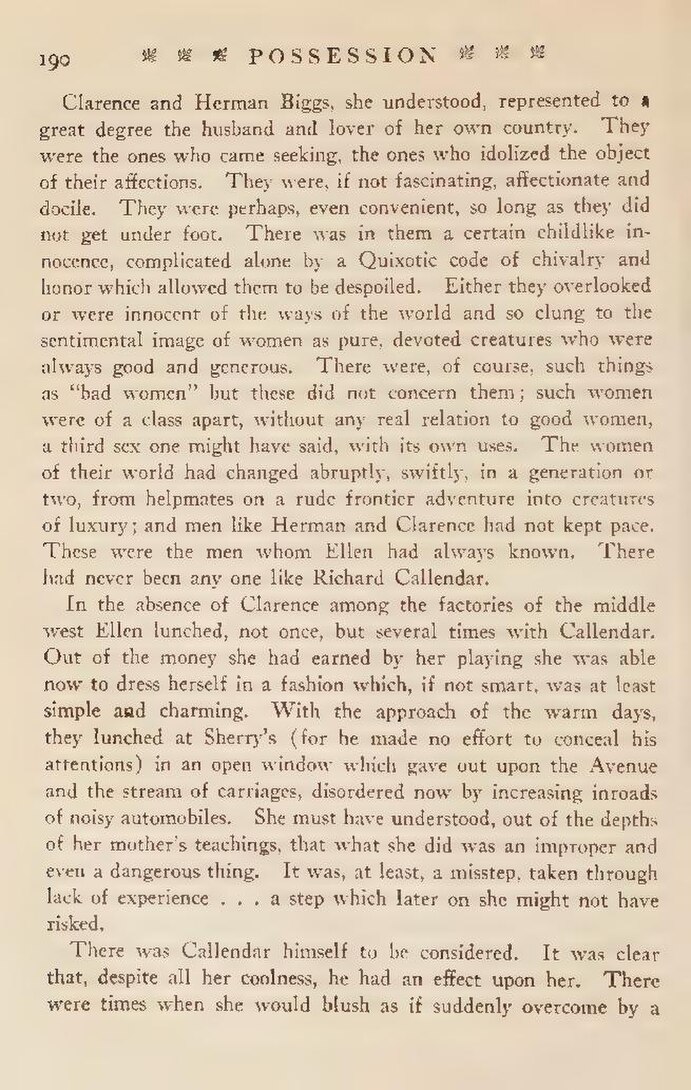Clarence and Herman Biggs, she understood, represented to a great degree the husband and lover of her own country. They were the ones who came seeking, the ones who idolized the object of their affections. They were, if not fascinating, affectionate and docile. They were perhaps, even convenient, so long as they did not get under foot. There was in them a certain childlike innocence, complicated alone by a Quixotic code of chivalry and honor which allowed them to be despoiled. Either they overlooked or were innocent of the ways of the world and so clung to the sentimental image of women as pure, devoted creatures who were always good and generous. There were, of course, such things as "bad women" but these did not concern them; such women were of a class apart, without any real relation to good women, a third sex one might have said, with its own uses. The women of their world had changed abruptly, swiftly, in a generation or two, from helpmates on a rude frontier adventure into creatures of luxury; and men like Herman and Clarence had not kept pace. These were the men whom Ellen had always known. There had never been any one like Richard Callendar.
In the absence of Clarence among the factories of the middle west Ellen lunched, not once, but several times with Callendar. Out of the money she had earned by her playing she was able now to dress herself in a fashion which, if not smart, was at least simple and charming. With the approach of the warm days, they lunched at Sherry's (for he made no effort to conceal his attentions) in an open window which gave out upon the Avenue and the stream of carriages, disordered now by increasing inroads of noisy automobiles. She must have understood, out of the depths of her mother's teachings, that what she did was an improper and even a dangerous thing. It was, at least, a misstep, taken through lack of experience . . . a step which later on she might not have risked.
There was Callendar himself to be considered. It was clear that, despite all her coolness, he had an effect upon her. There were times when she would blush as if suddenly overcome by a
